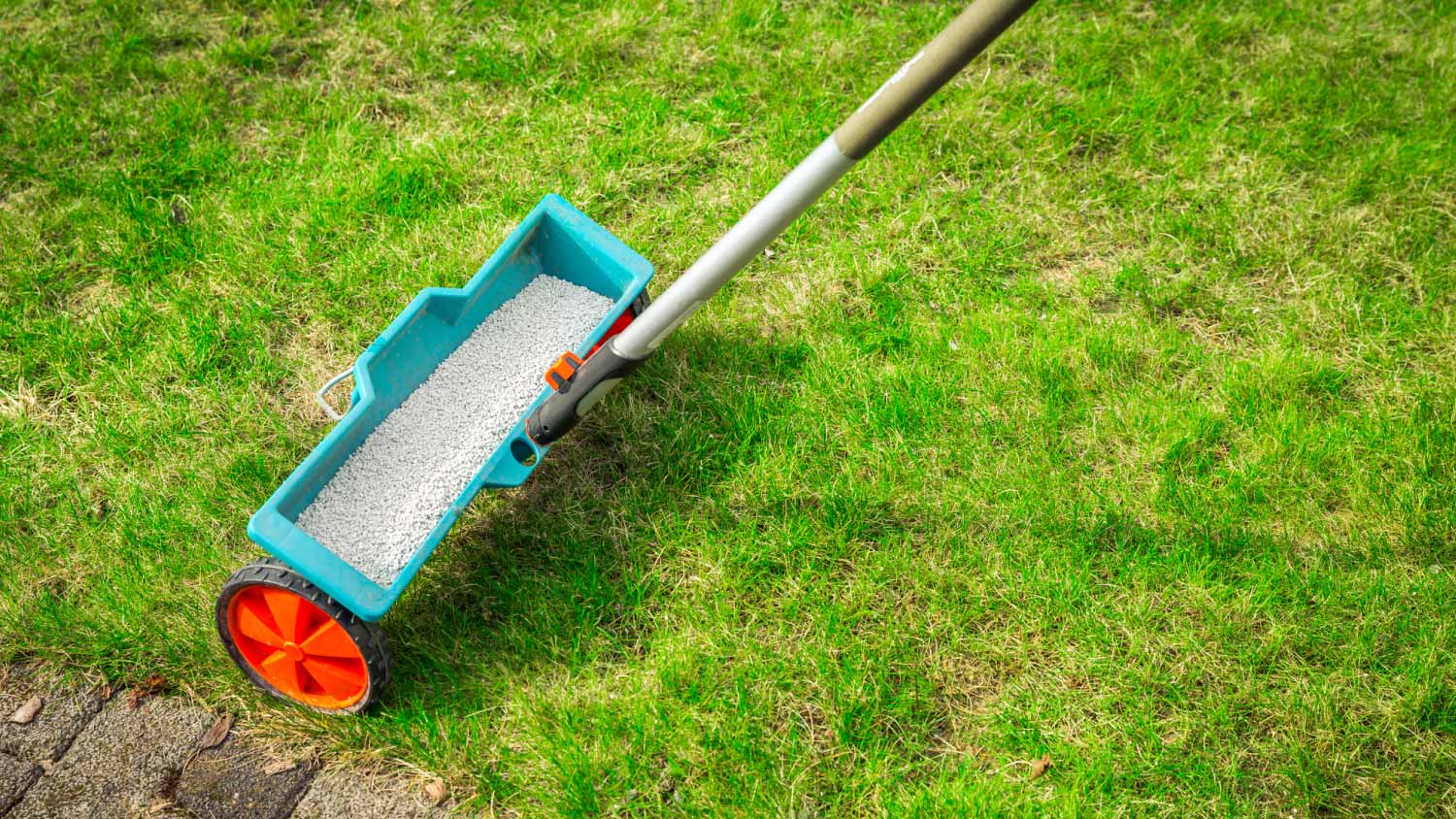
Your total lawn care cost depends on several factors, including the type of service and lawn size. Our guide will cover what you can expect to pay for lawn care.
Sugar is not just for coffee (and cake) anymore


Sugar limits nitrogen absorption in plants, which can help control broadleaf and annual weeds without the use of harsh chemicals.
Sprinkle 1 cup of sugar directly on the weeds, keeping it away from the plants you want to keep.
Sugar can help balance nitrogen-rich soil, allowing flowers to compete with grasses, but it's not a substitute for actual fertilizer.
Use sugar sparingly—no more than once a month—and watch for fungal growth since it can attract fungi.
Sugar has a myriad of uses, from baking cakes to keeping flowers fresh, but does sugar help your lawn? It sounds fairly incredible, but the answer is a resounding yes. Sugar has a few primetime uses for helping to keep your yard looking and feeling its best. Here is the scoop on how to use sugar in your yard effectively.
Sugar is often used as a DIY weed deterrent, but how in the world does that work? It boils down to the chemical properties of the sweet substance and how it interacts with plants of all kinds. Plants grow best in soil that is rich in nitrogen, as the element is the basis for green, leafy goodness, in addition to promoting the absorption of other required nutrients.
On the other hand, sugar is a carbon nutrient and contains no nitrogen whatsoever. As a matter of fact, it limits nutrient absorption, so it also limits growth in plants that are not adaptive to low-nitrogen environments. In other words, pouring sugar over your newly-planted herbs is not a great idea, but it is a nifty notion to pour it over unwanted weeds. The sugar limits access to nitrogen, thus controlling pesky weeds and other invasive plants. Before sprinkling sugar across your lawn, consider consulting a local lawn care service to ensure it’s the right move for your yard.
Sugar does not kill weeds directly, but it limits the pesky plant’s access to necessary nutrients, sending them to that great garden in the sky. Here is how to use sugar as an organic weed control for yard visitors.
First of all, sugar works best for broadleaf and annual weeds when compared to perennials and standard grasses, so identify your problem weeds before starting.
Start with 1 cup of sugar. Don’t oversaturate the yard as sugar attracts insects and animals.
Choose from powdered sugar, granulated sugar, or even a molasses spray, which is made by mixing 1 ¾ cups of molasses to ten gallons of water in a sprayer.
Sprinkle or spray the sugar around the base of any unwanted plants, such as weeds. Exercise caution and avoid accidentally coating other plants. Make sure you apply a generous coat over the offending weed’s root area.
Check the spot in one day or two, recoating if necessary until the weed starts showing signs of decline.
In rare cases, sugar makes for a decent lawn fertilizer, though not in the traditional sense. Sugar adds no necessary nutrients to the mix but it limits nitrogen absorption. In most cases, you want to give plants ready access to nitrogen but without overdoing it. Soils excessively rich in nitrogen prioritize certain plants over others, such as shrubs and grasses over flowers.
In these cases, using a small amount of sugar as a fertilizer helps keep things even, giving flowering plants the same access to nitrogen as foliage. Sugar is not a substitute for other fertilizers, as it contains no useful nutrients. Use it sparingly as an add-on.
Spread 4 to 5 pounds of granulated sugar over 10 square feet of soil. Stick to gardens and other parts of the yard where you want to encourage flower growth over foliage growth.
Water the grass lightly after applying the sugar to discourage curious insects and animals from taking permanent residence in your yard.
Make sure to follow this up with an actual fertilizer that, you know, fertilizes the soil.

To be clear: You can’t spread pancake syrup over your yard and expect fantastic results. Here are some tips to use sugar to help your lawn out of a weed-infested slump.
Remember, sugar is best for certain weed varieties like broadleaf grass and perennial grass. Verify your weed types before starting the application process.
A little goes a long way—start with 1 cup or even a handful of sugar when killing weeds.
Only use a sugar solution, at most, once a month to avoid eliminating crucial nutrients.
This process also works best in early spring before weeds have a chance to seed and take further root.
Inspect your lawn regularly for fungal growth after applying a sugar solution, as sugar and fungus go together like peanut butter and jelly.
From average costs to expert advice, get all the answers you need to get your job done.

Your total lawn care cost depends on several factors, including the type of service and lawn size. Our guide will cover what you can expect to pay for lawn care.

The cost to renovate your lawn depends on the extent of the damage. Our guide will show you how much lawn renovation costs.

How much it costs to rent a lawn aerator depends on what kind you rent and how long you rent it for. Read on for the full details.

A lush lawn doesn't have to be an unattainable luxury. Use this guide to learn how to fix patchy grass throughout your yard.

How does your garden grow? With these nine tips for raised beds, they’re sure to be elevated—both in height and quality.

Fescue grasses are among the top choices for northern and central lawns in the U.S. This hardy, dependable turf grass is a go-to from Montana to Missouri.